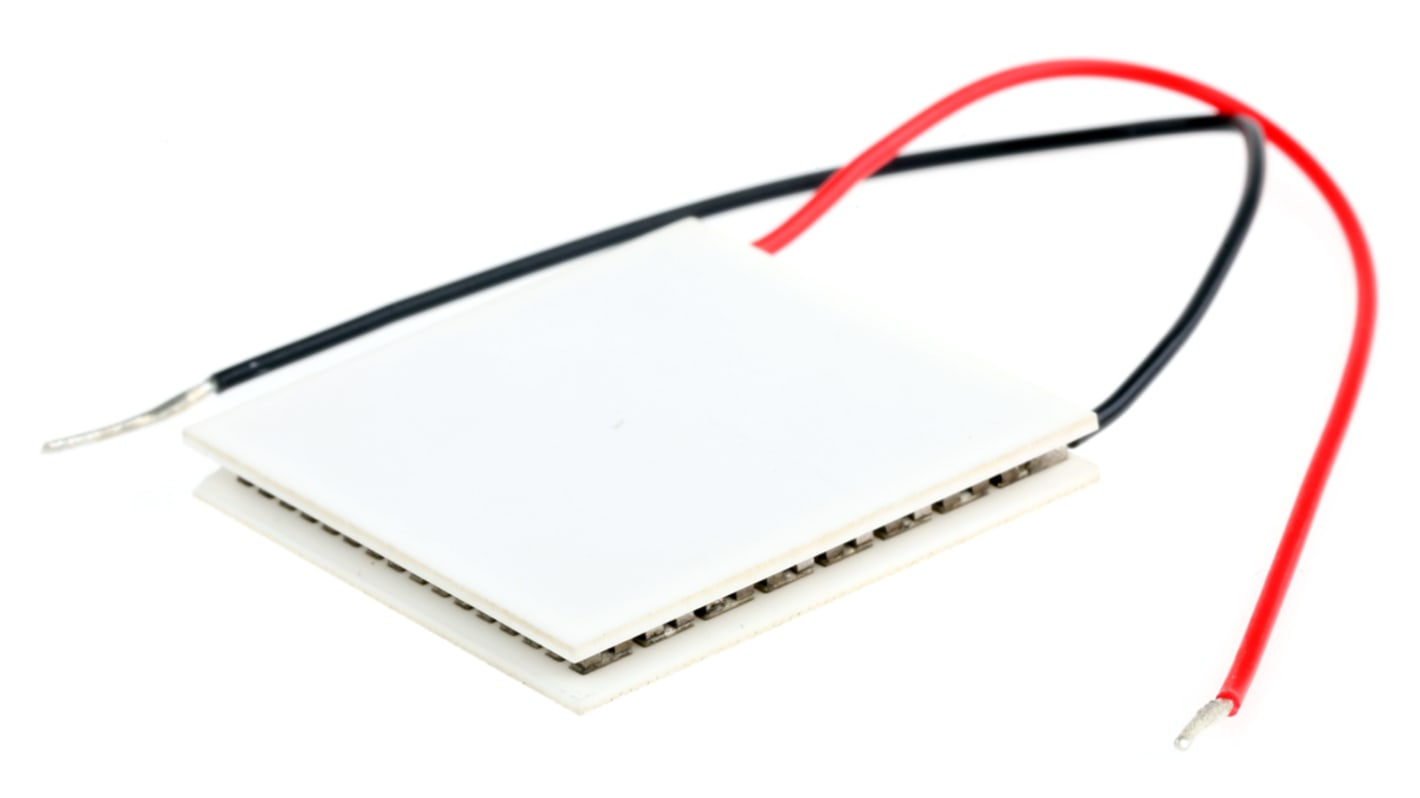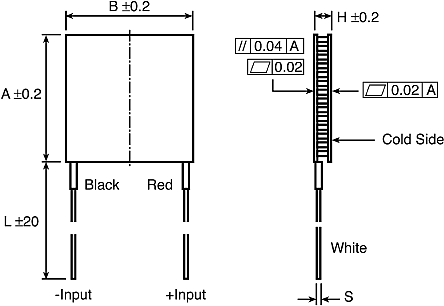Adaptive Peltier Module, 37.4W, 3.9A, 15.7V, 30 x 30mm
- RS Stock No.:
- 490-1496
- Mfr. Part No.:
- ETH-127-10-13-RS
- Brand:
- Adaptive

Bulk discount available
Subtotal (1 unit)*
£40.16
(exc. VAT)
£48.19
(inc. VAT)
FREE delivery for orders over £50.00
In Stock
- 16 unit(s) ready to ship
- Plus 1 unit(s) ready to ship from another location
Need more? Click ‘Check delivery dates’ to find extra stock and lead times.
Units | Per unit |
|---|---|
| 1 - 4 | £40.16 |
| 5 - 9 | £38.15 |
| 10 - 24 | £36.96 |
| 25 - 99 | £35.35 |
| 100 + | £31.33 |
*price indicative
- RS Stock No.:
- 490-1496
- Mfr. Part No.:
- ETH-127-10-13-RS
- Brand:
- Adaptive
Specifications
Technical Reference
Legislation and Compliance
Product Details
Find similar products by selecting one or more attributes.
Select all | Attribute | Value |
|---|---|---|
| Brand | Adaptive | |
| Maximum Cooling Capacity | 37.4W | |
| Maximum Temperature Difference | +73K | |
| Maximum Current | 3.9A | |
| Maximum Voltage | 15.7V | |
| Active Area | 30 x 30mm | |
| Active Area Length | 30mm | |
| Active Area Thickness | 3.6mm | |
| Active Area Width | 30mm | |
| Select all | ||
|---|---|---|
Brand Adaptive | ||
Maximum Cooling Capacity 37.4W | ||
Maximum Temperature Difference +73K | ||
Maximum Current 3.9A | ||
Maximum Voltage 15.7V | ||
Active Area 30 x 30mm | ||
Active Area Length 30mm | ||
Active Area Thickness 3.6mm | ||
Active Area Width 30mm | ||
- COO (Country of Origin):
- CN
Thermoelectric Cooler Modules, Adaptive
The Thermoelectric modules utilise the Peltier phenomenon principle to pump heat when voltage is applied.
Effective cooling power from mW to a hundred of Watts
Max hot side temperature Th = 90°C for best long term performance
Modules can be bonded using heat sink bonder
Applications in refrigeration and power generation
Silicone sealed options
Max hot side temperature Th = 90°C for best long term performance
Modules can be bonded using heat sink bonder
Applications in refrigeration and power generation
Silicone sealed options

Thermoelectric Modules - Peltier Effect
A range of semiconductor thermoelectric devices working on the Peltier effect. When supplied with a suitable electric current, they can either cool or heat. When subject to an externally applied temperature gradient these devices will generate a small amount of electrical power.The larger devices can be used for cooling or controlling the temperature of sub-assemblies. The small size of the mini module makes it ideally suited for cooling miniature electronic components such as infra-red detector chips, microwave IC's, fibre-optic lasers and detectors.,Alternatively, it may be used to minimise the effects of temperature coefficients on oscillator stability, reference voltages, amplifier offsets etc. by providing temperature control.
Solid-state long term stability
Generates no acoustic noise
Generates no acoustic noise
Related links
- Adaptive Peltier Module 3.9A 30 x 30mm
- Adaptive Peltier Module 16V, 30 x 30mm
- Adaptive Peltier Module 2A 30 x 30 x 30mm
- Adaptive Peltier Module 3A 30 x 30 x 30mm
- Adaptive Peltier Module 3.9A 30 x 15mm
- Adaptive Peltier Module 3.9A 40 x 40mm
- Adaptive Peltier Module 3.9A 20 x 20mm
- Adaptive Peltier Module 2.8A 30 x 30mm
